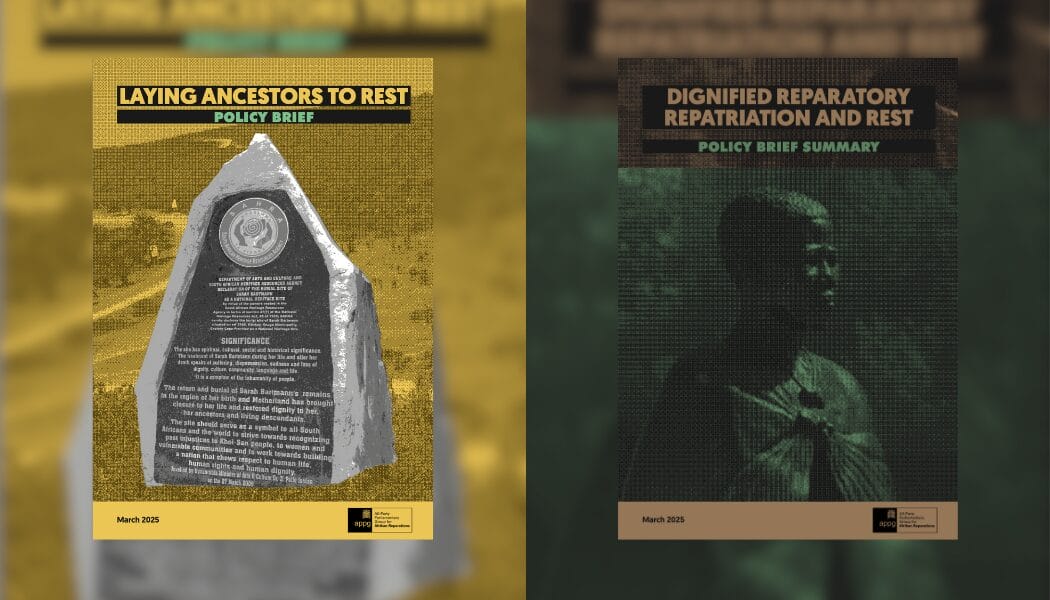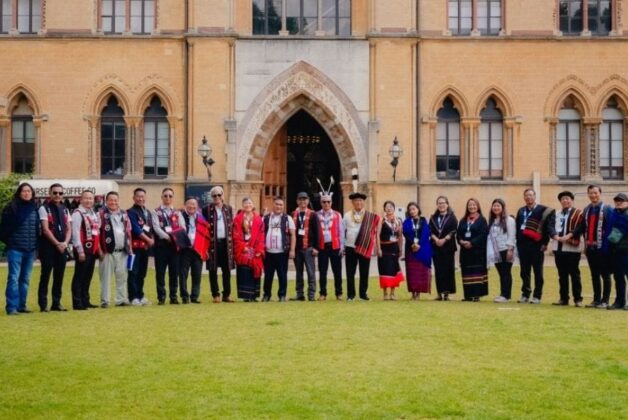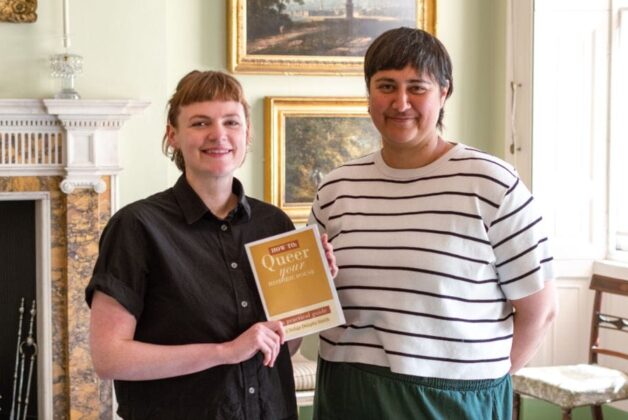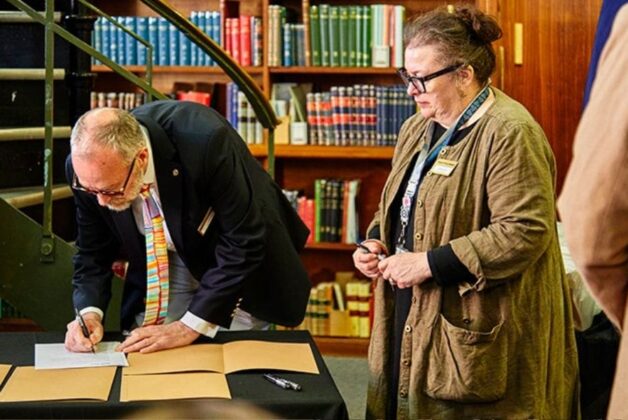New published policy briefs call for legal updates and changes to museum policies which affect the display and repatriation of remains
The display of human remains in UK museums should be stopped in cases where there is no consent, according to a new report created by a Parliamentary Group.
The All-Party Parliamentary Group for Afrikan Reparations (APPG-AR) has produced a policy brief, ‘Laying Ancestors to Rest’, which makes the case that the display and sale of African ancestral remains by British institutions “causes profound distress to diaspora communities and countries of origin”.
Bell Ribeiro-Addy MP Chair, All-Party Parliamentary Group on Afrikan Reparations (APPG-AR) said “It’s shocking that institutions continue to display African ancestral remains or that a market still exists for them in prestigious auction houses.”
“Internally driven institutional reforms have been slow and inconsistent. It’s time for government to lead, establishing robust legal frameworks to ensure the dignified treatment and rightful return of these remains.”
The report includes recommendations for changes to both law and to museums directly. It argues that museums should change internal policies to remove requirements or recommendations that claims for return should be made through a national government or government agency.
The report also recommends that the UK government should ensure that the board of trustees of national museums include representatives from diasporic civil society organisations, and that DCMS should establish an independent Human Remains Advisory Panel, following the model of the UK Spoliation Advisory Panel.
It also argues for the removal of any distinctions between the return of human remains, modified human remains, as well as cultural material, and that source communities should determine what falls within the definition of ‘ancestral remains’.
The policy brief recommends amendments to law, specifically the Human Tissue Act 2004. The changes would make the public display of human remains an offence, ”except if appropriate consent is obtained or for religious or funerary purposes”.
A second change to the act would mean museums and other institutions that hold ancestral remains older than 100 years would be required to obtain a license from the Human Tissue Authority for the storage of such remains.
Dan Hicks FSA MCIfA, Curator of World Archaeology at the Pitt Rivers Museum, called the policy brief an “urgent document”.
Hicks writes in the report: “the time is right to address the question of ancestral remains in new ways: with institutional openness, respect for the dead, reconciliation with descendants – and, yes, new forms of regulation.”
“Accountability and answers are being demanded by the audiences, communities, stakeholders and taxpayers that museums and university collections serve.”
The recommendations follow research by The African Foundation for Development (AFFORD), a charity which aims to “expand and enhance the contributions Africans in the diaspora make to African development.”
Its research included a review of existing legislation, policies and best practices, as well as consultations with museum practitioners, legal experts, academics, activists and members of the African diasporic community in the UK.
Repatriation
A second policy brief summary follows a study in both Zimbabwe and Namibia to “unravel the factors currently besetting the repatriation of African human remains from the UK and Germany to Zimbabwe and Namibia respectively.”
The African Museums and Heritage Restitution (AFRIMUHERE) group have developed the ‘Dignified Reparatory Repatriation and Rest’ report in partnership with AFFORD, and the Decolonise the Archives (DTA), on behalf of the UK’s All-Party Parliamentary Group on Afrikan Reparations.
The brief seeks to “facilitate the respectful repatriation of African ancestral remains and their dignified burial in line with traditional norms and practices, thereby ending more than a century of suffering, cultural insensitivity and restoring the dignity of the communities.”
Among its recommendations is that the UK and Germany should “legally recognise colonial genocide and systemic violence as grounds for reparations under international human rights laws”, and in doing so “ensuring binding agreements replace symbolic gestures as colonialism and enslavement are now recognised as crimes and injustices against humanity.”
Consultations were conducted by the group with museum directors and curators, archivists, other government cultural practitioners, descendant communities and leaders, academics and activists in Zimbabwe and Namibia.





